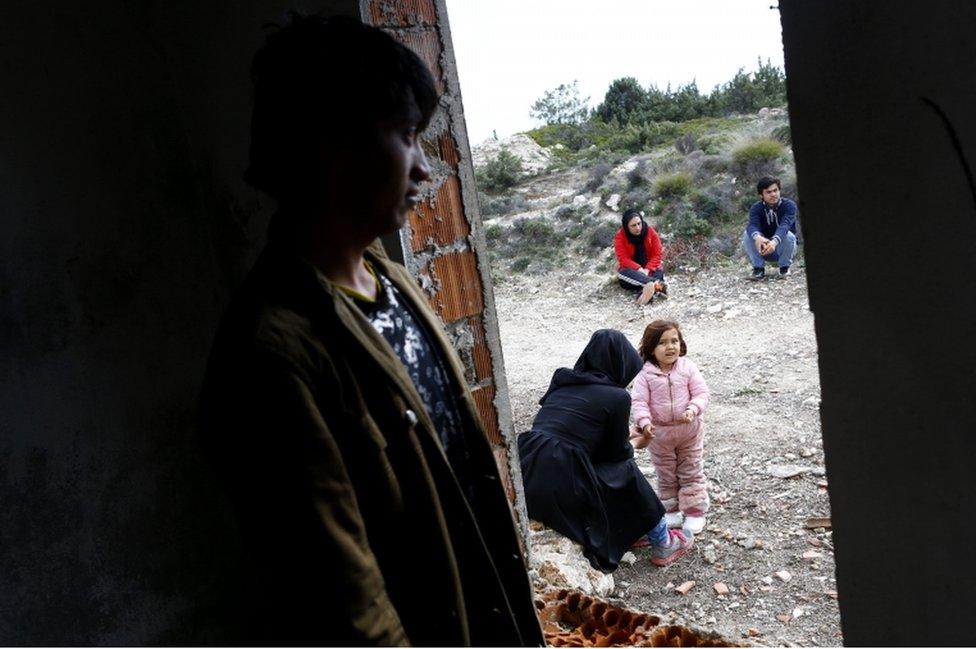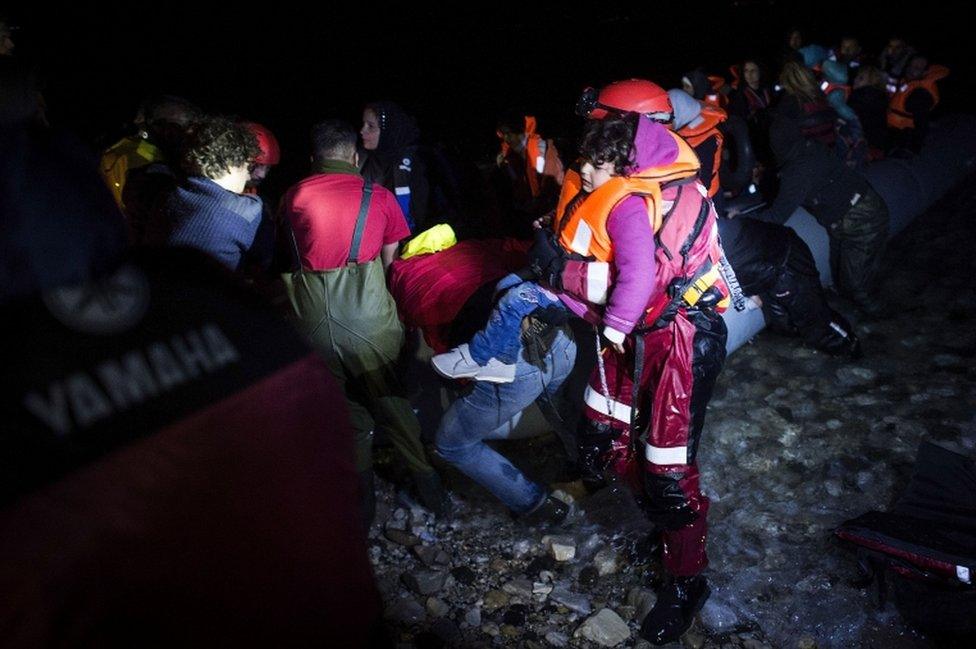Migrant crisis: Could Turkey implement migrant plan?
- Published

Turkey is already hosting millions of migrants and refugees on a temporary basis
The EU and Turkey say they have agreed the broad principles of a plan to ease the migration crisis. But how easy will they be for Turkey to implement?
Ambitions to return all irregular migrants caught travelling the Greek islands to Turkey - as part of a "one-for-one" deal - have already been condemned as potentially against international law.
And there are questions over whether EU countries will declare Turkey a "safe country of asylum", a development needed to enable Syrian refugees to be sent back.
Experts point out that Turkey may have also problems accommodating the refugees on a sustainable basis.

Read more about the migrant crisis

Under the 1951 Geneva Convention, only migrants from European countries can be entitled to refugee status in Turkey.
Migrants from non-European countries can receive only a "temporary protection" status, which is the case for over 2.7 million Syrians already living in Turkey.
"The EU wants to give the impression that Turkey is a safe country, so that they can send as many migrants as possible back there," says Metin Corabatir, the UN refugee agency's former spokesman in Turkey.
"But for the readmission agreement to work, migrants in Turkey should have the right to apply for refugee status."
'Bound to revolt'
Migration expert Murat Erdogan warns that migrants would be likely to try to resist the action.

EU leaders want Turkey to take back migrants and refugees arriving illegally
"These people have already escaped bombs, murderers, mines and risked their lives on boats to come to Greece," he says.
"How are you going to tell them to go back to Turkey? They are bound to revolt."
He also questions Turkey's capacity to register all the migrants sent back from Greece and its ability to manage the process.
"Turkey still has not been able to register the Syrians already living in the country. How is it supposed to regularise the newcomers?"
'Good strategy'
The proposed deal is yet to be finalised, with leaders continuing to work on it ahead of a summit on 17-18 March in Brussels.
However, observers say Ankara feels like it has played its cards well.
If the plan goes ahead, moves to allow Turkish citizens visa-free travel to the EU could be sped up; €3bn ($3.3bn; £2.2bn) of EU aid already pledged to Turkey could be doubled; and preparations could be made for opening new chapters in Turkey's long-stalled EU accession talks.
"Turkey has managed a good negotiation strategy," says Sinan Ulgen, from the Carnegie Endowment for International Peace.
"Turkey has evaluated the serious effects of the migrant crisis on Europe and how European leaders feel increasingly under pressure. It secured the best possible deal," he comments.
Mr Ulgen says some of the points in the proposed agreement - such as visa-free travel for Turkish citizens - could be difficult for some EU countries to accept.
Critics also accuse the EU of turning a blind eye to what they see as violations of human rights, freedom of speech and press freedom in Turkey. Last week an opposition paper was seized by the government, with the paper drastically changing its editorial line to pro-government.
But "the EU needs to negotiate with Turkey now", says Murat Erdogan.
'Bound to fail'
"That's why they do not utter a single objection to what goes on."
However he believes the deal as it stands is bound to fail, and argues instead for greater integration of Turkey into the EU.
"Turkey and EU have to develop a cohesive and common migration policy, a common refugee policy and a common integration policy," he says.
"The only way to stem the migrant flow is to secure Turkey's east and southeast borders. Turkey cannot only play the role of the police or the gatekeeper. It has to become part of the EU system."
A note on terminology: The BBC uses the term migrant to refer to all people on the move who have yet to complete the legal process of claiming asylum. This group includes people fleeing war-torn countries such as Syria, who are likely to be granted refugee status, as well as people who are seeking jobs and better lives, who governments are likely to rule are economic migrants.